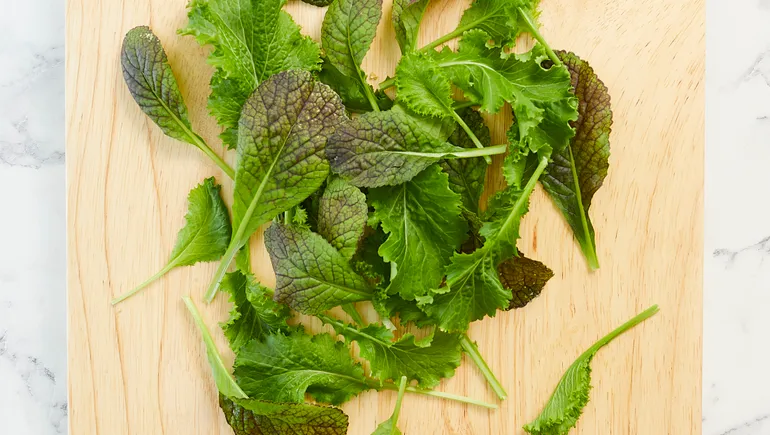Bayer teams with CRISPR startup Pairwise for bitterless mustard greens

Bayer is expanding its partnership with Pairwise to introduce an improved leafy green with higher nutrition than average lettuce. Bayer signed a licensing deal with the US-based ag-tech startup to develop and commercialize Pairwise’s genome-edited mustard greens.
The new leafy green is a mixture of multi-use mustard green varieties. Pairwise’s proprietary Fulcrum Platform was used to create the modified vegetable. This new crop of mustard green removes the spicy wasabi flavor associated with it, revealing a pleasant, unique flavor, according to Pairwise.
“We were at a turning point with mustard greens and what it was going to invest in marketing to become a salad company,” CEO of Pairwise Tom Adams said. “We decided that rather than taking our venture dollars to build this big marketing effort, we should focus on what differentiates us — the ability to use technology to make good products — and then license them.”
The agreement comes after Pairwise launched the world’s first consumer CRISPR-edited salad in Palo Alto. Despite good reception from consumers, Pairwise was looking for a partner to handle the commercialization.
The license allows Bayer to breed and grow 10 mustard green varieties Pairwise has edited. The different mustard green varieties have different colors and contain traits that improve their taste and nutritional value, according to Adams. Financial details of the agreement were not disclosed.
Pursuing this license is part of Bayer’s open innovation approach — a strategy that taps into experts and knowledge from outside the company’s internal resources.
Bayer’s “open innovation approach” helps the company bring new products to market quickly.
“We see more opportunities to deliver new interesting vegetables to consumers, and so we launched the open innovation platform specifically to help external researchers commercialize their gene editing inventions,” said Tom Osborn, Head of Vegetable Product Design at Bayer.
This will be the company’s first move into CRISPR-edited products for consumers, previously focusing on edits appealing to farmers.
Last September, Bayer renewed its agreement with Pairwise for the startup’s short-corn variety developed for farmers. The corn — six feet instead of nine — reduced harvest losses due to wind and allowed farmers to drive on the ground tall standing tractors, known as hi-boys, instead of having to fly drones to spray herbicide and other inputs.
So far, 2024 has been a hectic year for the giant conglomerate.
The company is currently in the midst of multiple U.S. litigations — a 2021 lawsuit from three cancer survivors who claim that the herbicide Roundup was responsible for their illness and an antitrust allegation for its pet tick and flea products from competitor Tevra.
In February, the company also announced a minor round of layoffs in the management section of its agricultural department.
Pairwise hopes that collaborating with Bayer will allow it to allocate resources towards new and exciting innovations, such as seedless blackberries and pitless cherries.
Source: fooddive.com

